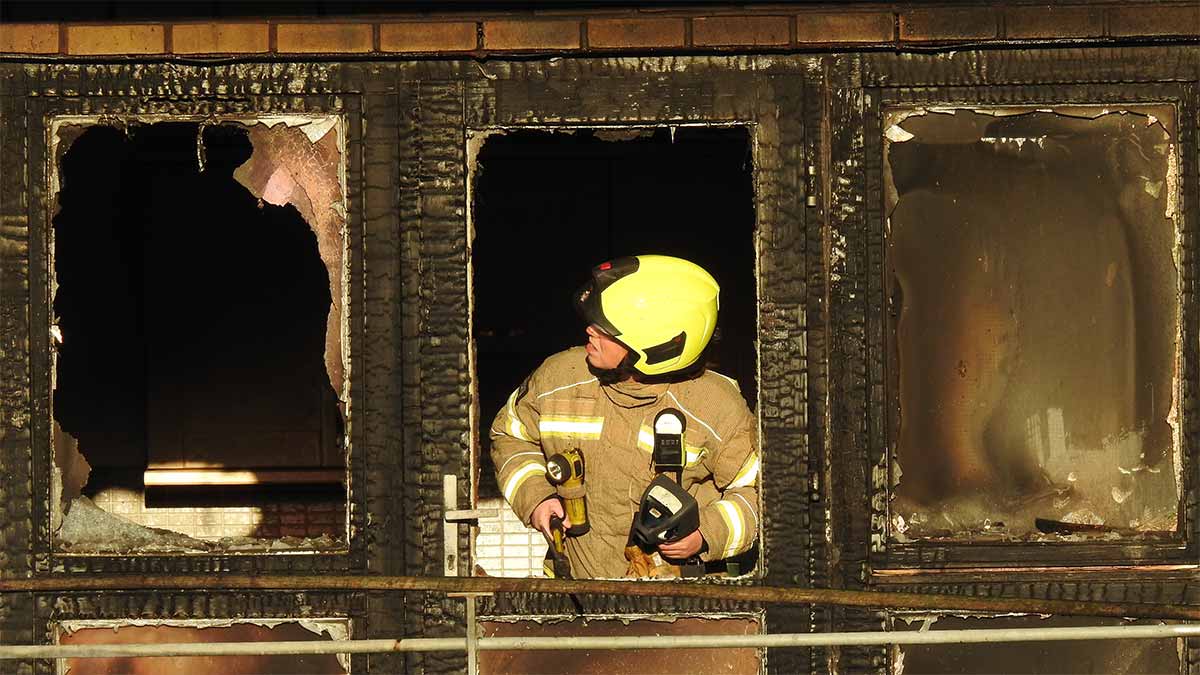
Occupational cancer study launched among Tyne & Wear firefighters

Firefighters in Tyne & Wear are participating in a study that will determine how many have occupational cancers and other diseases resulting from exposure to toxic contaminants in fire.
Tyne and Wear Fire & Rescue Service, the Fire Brigades Union (FBU), and the University of Central Lancashire has asked firefighters to provide blood and urine samples for analysis by leading experts in fire chemistry and toxicology.
It is the first study of its kind in the UK and aims to determine what changes need to be made to make firefighting a safer profession.
A recent survey of more than 10,000 firefighters across the UK found that 4.1% had been diagnosed with cancer, and cancer cases among firefighters aged 35-39 were up to 323% higher than in the general population in the same age category. It also found they were more likely to die from heart attacks, stroke and other diseases.
Last year, the International Agency for Research on Cancer, a World Health Organization (WHO) body, declared that firefighting is a carcinogenic occupation, and put individuals at higher risk of developing mesothelioma, melanoma and non-Hodgkin lymphoma, and cancers of the bladder, colon, prostate, and testis.
Riccardo la Torre, national officer for the FBU, said that health monitoring should be rolled out in fire services across the UK to make it a safer profession.
“Tyne and Wear is setting a positive example for how fire services can assist in making real steps forward to save firefighters’ lives from occupational cancer and diseases,” he said.
Anna Stec, professor in fire chemistry and toxicity at the University of Central Lancashire, said: “It is vital that firefighters can continue to do their jobs as safely as possible, and the research shows that measures such as health monitoring and reducing exposure from contaminants at the workplace will play an important part in protecting firefighters.”
Tyne & Wear Fire and Rescue Service has incorporated Stec’s advice around reducing exposure to contaminants into its working practices, by investing in “clean cab technology” and particulate monitoring in its vehicles, as well as a decontamination locker to store dirty PPE and equipment.
Welfare decontamination packs have been introduced in the station for firefighters returning from difficult incidents.
Deputy chief fire officer Peter Heath said: “This is a huge step forward in the continuous drive towards improving firefighter safety and I’m proud of our firefighters for volunteering to take part in this vital research into the potential effects of contaminants.”
The university has developed a UK Firefighters Cancer and Disease Registry to collect information from firefighters across the UK that will help with its research.
Stay connected with us on social media platform for instant update click here to join our Twitter, & Facebook
We are now on Telegram. Click here to join our channel (@TechiUpdate) and stay updated with the latest Technology headlines.
For all the latest Health News Click Here
For the latest news and updates, follow us on Google News.

